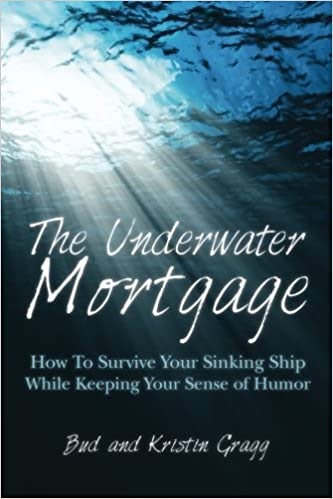The Basics of Underwater Mortgage
If you own an underwater mortgage loan, you most likely owe far more on the property than value. It is certainly not a situation that any homeowner wishes to be in. However, it happens to so many more people than you might think! Most homeowners only don t know how much they are up against when they find themselves deep in the hole. However, the truth of the matter is that you can protect yourself from the possibility of losing your underwater mortgage. Here is what you need to do.

Most homeowners simply assume that the amount owing on their current mortgage balance will continue to increase over time. This assumption is not correct. Some lenders allow underwater borrowers to refinance even when their current mortgage balance has increased substantially (by a large amount!). This means that borrowers have some flexibility and can choose to keep their existing equity level. The key to doing this is understanding how to calculate the value of a home equity loan and use it as a tool to refinance.
One way of calculating your underwater mortgage’s value is to calculate your home’s current market value. The problem with this calculation is that you must already have equity in your home (this is usually done by securing a loan). It is impossible to do this calculation before you owe money! Therefore, most borrowers are simply unaware that they could save a great deal of money by refinancing for a lower interest rate or stopping the collection efforts.
The second option is to consult with a qualified and experienced underwater mortgage lender. Numerous reputable lenders can assist you with refinancing your current home loans, including those offering HELOCs (Home Equity Lines of Credit). Although the interest rate on a HELOC is likely to be higher than your current interest rates, many lenders offer special deals to first time home buyers. A qualified and experienced underwater mortgage lender will evaluate your current debt, current income and credit history. This lender may also assess your FICO score to ensure you don't have too much debt and meet other qualification requirements.
Most homeowners are unaware that they can sell their equity even if their home is underwater. In some cases, the loss of equity allows the owner to take out a loan and repay the principal, at any time. However, if the home’s value does not sufficiently appreciate the long term, the homeowner may need to sell the property. As mentioned above, when a homeowner sells their underwater mortgage, the monthly principal may not appreciate, and the homeowner may be required to pay the original loan in full.
If a homeowner can sell their underwater mortgage at a reasonable price, they can quickly realize their new loan’s positive cash flow benefits. However, if the home is sold at a lower than the property’s current value, the homeowner may lose money due to the negative equity. Although the borrower can refinance their underwater mortgage for the property’s current market value, this will cost them thousands of dollars in fees, costs, and potentially missed interest payments. As mentioned above, if the home prices do not appreciate sufficiently in the future, a homeowner may lose out on the opportunity to quickly repay their debt and eliminate negative equity.
As mentioned above, many underwater mortgage lenders offer special incentives to first time home buyers. For example, many underwater mortgage lenders may require potential borrowers to sign a deed in lieu of foreclosure, which allows the lender to take control of the homeowners' future debts instead of filing a lawsuit in the courts. Another incentive may be an interest-only mortgage with a higher than the market rate, which allows the borrowers to repay only the interest on the principle rather than the total debt. Many borrowers, particularly seniors, have become trapped in homeownership because of inadequate financial circumstances and having a foreclosure or other action results in severe damage to credit.
If you are considering purchasing a new home, it is a good idea to check your options. There are several different kinds of mortgage, including interest-only, negative equity, and upside-down mortgage; you should choose the type of mortgage that best meets your financial goals. With any kind of mortgage, borrowers must understand the terms and costs involved. It is also a good idea to research the various types of mortgages to choose the one that is right for you. Remember, when it comes to buying a new home, the most important thing is getting started on time with your dreams and personal objectives.